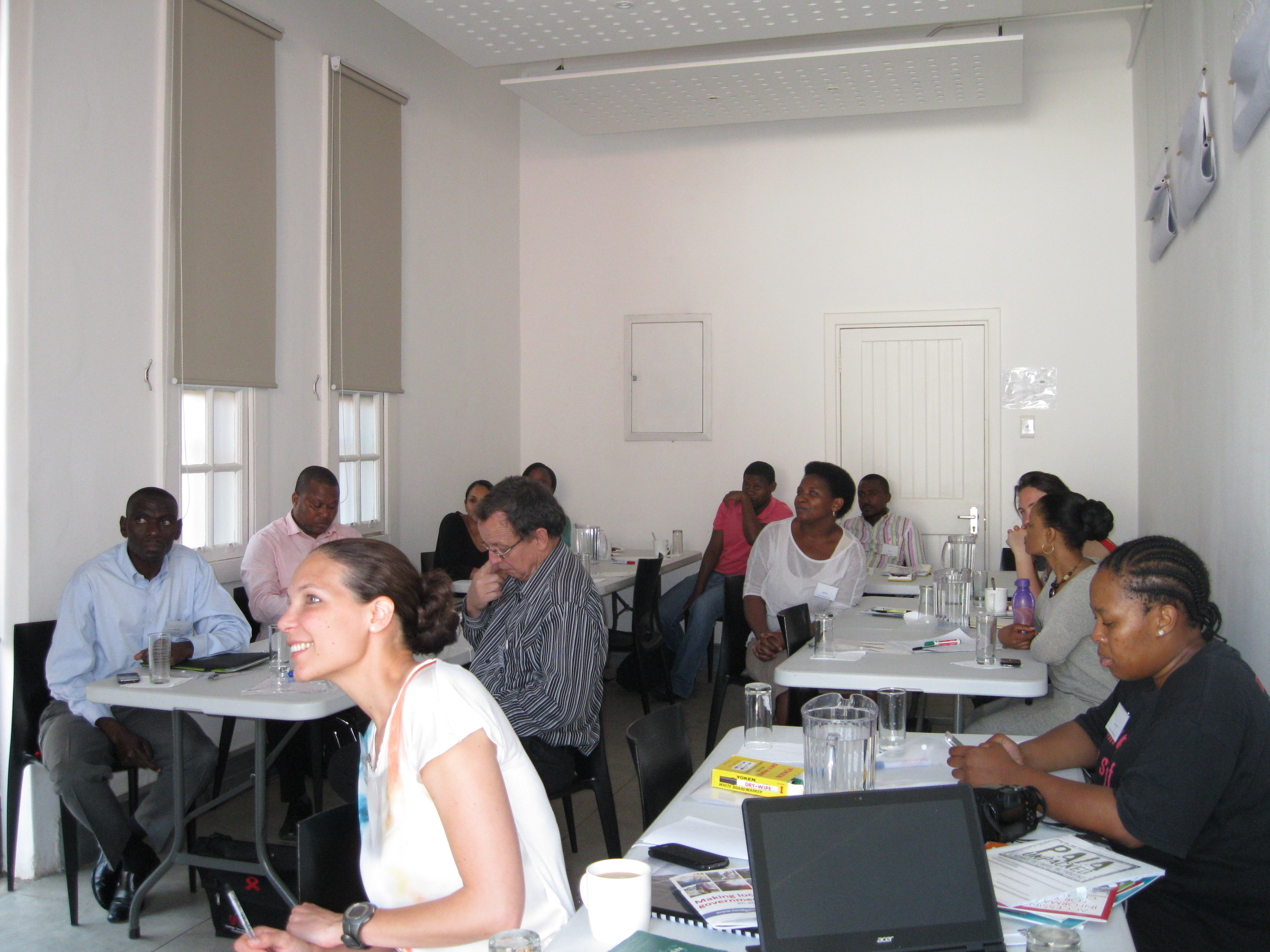|
30 September 2015
REPORT BACK: Local Government Stakeholder Engagement
 Earlier this year SAHA’s Freedom of Information Programme (FOIP) embarked on a pilot capacity-building project, focusing on using workshops to support the use of and compliance with the Promotion of Access to Information Act, 2000 (PAIA) at local government level. Earlier this year SAHA’s Freedom of Information Programme (FOIP) embarked on a pilot capacity-building project, focusing on using workshops to support the use of and compliance with the Promotion of Access to Information Act, 2000 (PAIA) at local government level.
As part of this process SAHA met and engaged, through civil society partners Right2Know Campaign and Public Service Accountability Monitor (PSAM), with local community activists, in order to determine what the local communities' information needs were and what some of the blockages they had experienced were in terms of access to information. Communities indicated to SAHA that they had particular difficulty with:
- The manner in which they were granted access to important information, noting for instance that important documents are often only available in English, even when that is not the local dialect;
- The fact that large and technical documents, like the Integrated Development Plan, while available in libraries are usually only available as reference copies - which means that it is not possible to take it home in order to have time to read it carefully and consult with other community members on the more technical aspects; and
- The manner in which they are notified of opportunities to consult and engage with their municipalities, specifically they indicated that they are often only made aware of engagements very shortly before an event with little time to plan to attend and no time to review lengthy technical documents that are supposed to inform the discussions.
These points were incorporated into the workshops that SAHA hosted in collaboration with the municipalities that it had partnered with.
SAHA has now started the process of collating the materials developed for the workshops into training tools that can be used more broadly at the local level, and on 29 September 2015, in conjunction with International Right to Know Day (celebrated annually on 28 September), SAHA hosted a further workshop to discuss and get feedback on our publication outline and plan to ensure that the resources developed will be useful to both requesters and suppliers of information at the local level.
Stakeholders invited to the workshop included the municipalities that had partnered with SAHA on this pilot project, that is, Makana Municipality and Emfuleni Municipality as well as the South African Human Rights Commission (SAHRC) and civil society organisation that are active at local government level. Valuable input was received from all present and SAHA is excited about incorporating all the ideas shared into the training tools. Specifically, SAHA has noted some of the challenges experienced by some of the municipalities in trying to ensure that access is granted to their communities, this included that:
- Deputy information officers are often caught in the middle, with colleagues, especially seniors, not understanding the importance of compliance with PAIA making it difficult for them to account to frustrated requesters;
- Record keeping is under-funded, and often not prioritised at the political level, therefore records are sometimes not being kept, or not being kept in an accessible manner, which hampers the ability of a deputy information officer to grant access to information in terms of PAIA; and
- That record creation, especially with regard to minutes for important meetings, is often so slow that, even internally, access to that information is problematic.
In addition, both municipalities and civil society raised the problem of sometimes very great distances between communities and municipal offices further hampering access to information.
Feedback from participants made it clear that the workshop was valuable to them as well as it provided an opportunity to network and, for some, shed light on key legislation that impacts on the right of access to information. One participant noted that it had been a wonderful platform for an “exchange of ideas” and for “sound boarding” with other interested stakeholders. |





 Earlier this year SAHA’s
Earlier this year SAHA’s